Later tours
New Zealand Rugby Union then refused any other tour for the succeeding ten years until Māori and Samoan player participation was accepted in 1970. On that occasion South African authorities, gave them the title of "Honorary Whites", but controversies remained. [2] [3] In 1976, all the African countries boycotted the Olympic Games in protest at the All Blacks' tour of South Africa.
Then, the 1981 Springboks' tour, was contested by a large part of New Zealand public opinion, with riots and demonstrations.
In 1985 public opinion convinced NZRU to cancel another tour in South Africa. Only with the end of apartheid, in 1992 did the controversy end.
Also outside the political troubles, the results of the tour weren't good in any case for All Blacks, that lost the series with only a victory and a draw in the four-match series against the Springboks

The New Zealand national rugby union team, commonly known as the All Blacks, represents New Zealand in men's international rugby union, which is considered the country's national sport. Famed for their international success, the All Blacks have often been regarded as the most successful sports team in history.
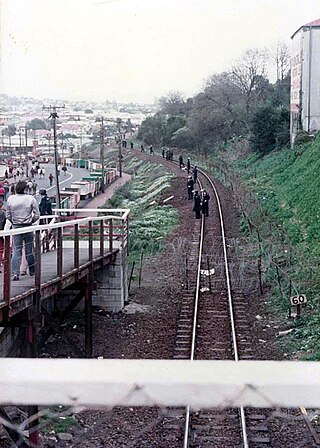
The 1981 South African rugby tour polarised opinions and inspired widespread protests across New Zealand. The controversy also extended to the United States, where the South African rugby team continued their tour after departing New Zealand.
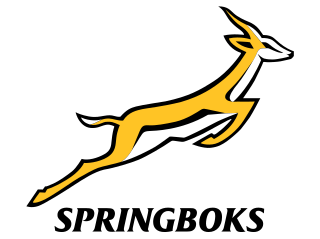
The South Africa national rugby union team, commonly known as the Springboks, is the country's national team governed by the South African Rugby Union. The Springboks play in green and gold jerseys with white shorts. Their emblem is a native antelope, the Springbok, which is the national animal of South Africa. The team has been representing South African Rugby Union in international rugby union since 30 July 1891, when they played their first test match against a British Isles touring team. They are currently the reigning World Champions and have won the World Cup on four occasions, the most of any nation. They are also the second nation to win the rugby world cup consecutively.

New Zealand Rugby (NZR) is the governing body of rugby union in New Zealand. It was founded in 1892 as the New Zealand Rugby Football Union (NZRFU), 12 years after the first provincial unions in New Zealand. In 1949 it became an affiliate to the International Rugby Football Board, now known as World Rugby, the governing body of rugby union for the world. It dropped the word "Football" from its name in 2006. The brand name New Zealand Rugby was adopted in 2013. Officially, it is an incorporated society with the name New Zealand Rugby Union Incorporated.

David Gallaher was an Irish-born New Zealand rugby union footballer best remembered as the captain of the "Original All Blacks"—the 1905–06 New Zealand national team, the first representative New Zealand side to tour the British Isles. Under Gallaher's leadership the Originals won 34 out of 35 matches over the course of tour, including legs in France and North America; the New Zealanders scored 976 points and conceded only 59. Before returning home he co-wrote the classic rugby text The Complete Rugby Footballer with his vice-captain Billy Stead. Gallaher retired as a player after the 1905–06 tour and took up coaching and selecting; he was a selector for both Auckland and New Zealand for most of the following decade.
Halt All Racist Tours (HART) was a protest group set up in New Zealand in 1969 to protest against rugby union tours to and from South Africa. Founding member Trevor Richards served as president for its first 10 years, with fellow founding member John Minto then serving as president until South Africa dismantled apartheid in the early 1990s.
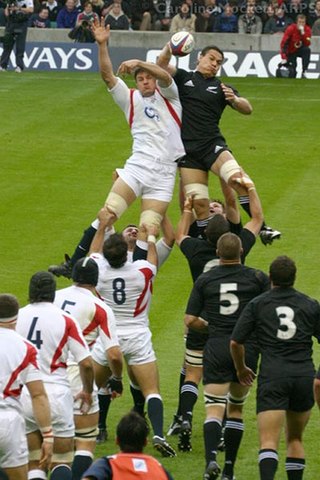
Rugby union has been played in New Zealand since 1870 and is the most popular sport in the country as well as being its national sport.
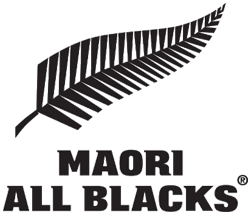
The Māori All Blacks, previously called the New Zealand Maori, New Zealand Maoris and New Zealand Natives, are a rugby union team from New Zealand. They are a representative team of the New Zealand Rugby Union, and a prerequisite for playing is that the player has Māori whakapapa (genealogy). In the past this rule was not strictly applied; non–Māori players who looked Māori were often selected in the team. These included a few Pacific island players and a couple of African descent. Today all players have their ancestry verified before selection in the team.

Sir David John Graham, generally known as John Graham, was a New Zealand educator and rugby union player. He served as president of the New Zealand Rugby Football Union (NZRFU) and was an All Black loose forward; he played 22 Tests between 1958 and 1964, including three as captain. He was headmaster of Auckland Grammar School from 1973 to 1993, New Zealand cricket team manager from 1997 to 1999, the University of Auckland Chancellor from 1999 to 2004, and was elected president of the NZRFU in April 2005.

Thomas Rangiwahia Ellison, also known as Tom Ellison or Tamati Erihana, was a New Zealand rugby union player and lawyer. He led the first New Zealand representative rugby team organised by the New Zealand Rugby Football Union (NZRFU) on their 1893 tour of Australia. Ellison also played in the 1888–89 New Zealand Native football team on their epic 107-match tour, scoring 113 points, and 43 tries with the side.

Vincent David Bevan was a New Zealand rugby union player.
1949 saw the second full tour of South Africa by a representative New Zealand rugby union team. The All Blacks achieved a record of 13 wins, 7 losses and 4 draws, and they lost the test series 4–0.

The 1921 South Africa rugby union tour of Australia and New Zealand was the third tour made by the Springboks rugby team, and their first tour to Australia and New Zealand. South Africa played three Test matches against the All Blacks. The series was drawn 1–all, and the long-running controversy between the countries over the All Blacks' inclusion of Maori players began.
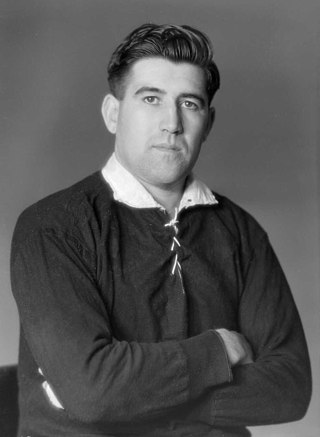
John Burns Smith was a New Zealand rugby union player, soldier, sportsman and baker. He was an All Black captain, and despite only playing nine matches is recognised as a great. His 26 appearances for the Second New Zealand Expeditionary Force rugby team, which toured the UK in 1946–47, earned him high praise. He also played for the New Zealand Māori, being of Ngāpuhi descent.
The 1908 New Zealand Māori rugby league tour of Australia was a tour made by a group of New Zealand Māori rugby footballers who played rugby league matches in Queensland and New South Wales. The tour had a large role in helping the New South Wales Rugby League establish itself in Sydney. As a result, the tour is a significant part of rugby league history. Financial and legal issues disrupted the end of the tour and an exhibition match held under rugby union rules was held to help pay for the team's return voyage to New Zealand.
Rugby union is the national sport of New Zealand with the All Blacks as the national team. The All Blacks are made up of many races and cultures, and seven of the fifteen starters in the 2011 Rugby World Cup final were of Polynesian descent. However, although the national team has a long history of success, it also has on occasion been the subject of racial issues. On the international stage there has been controversy in the tours of and by South Africa, the most famous of which was the 1981 tour by South Africa. These tours drew much international criticism as many states were boycotting South Africa due to apartheid. On the domestic stage there have been issues of racism in the Super Rugby competition. There have also been some instances of racism in college rugby and club rugby. Racism is quite a serious human rights issue in New Zealand, which was highlighted in the Universal Periodic Review by the United Nations Human Rights Council.
Rugby union and apartheid had a complex and supportive relationship. From 1948 to 1994, international rugby relations with the country, and also the non-integrated nature of rugby within South Africa drew frequent controversy. South Africa remained a member of the International Rugby Board (IRB) throughout the apartheid era.

Rugby union has a long history in New Zealand. Today, New Zealand holds tier one status with World Rugby.
The History of the South Africa national rugby union team dates back to 1891, when the British Lions first toured South Africa where they played against South African representative sides. The South Africa national rugby union team played few international matches during a period of international sanctions due to apartheid. Since the end of apartheid in 1994, South Africa has once again fully participated in international rugby.

Rieko Edward Ioane is a New Zealand professional rugby union footballer who plays as a wing or as a centre for New Zealand team Blues in Super Rugby and the New Zealand national team. In his youth career, he was selected to play in the 2014 and 2015 Sevens World Series for New Zealand and took part in Auckland Grammar School first XV, the top representative team in secondary school.













